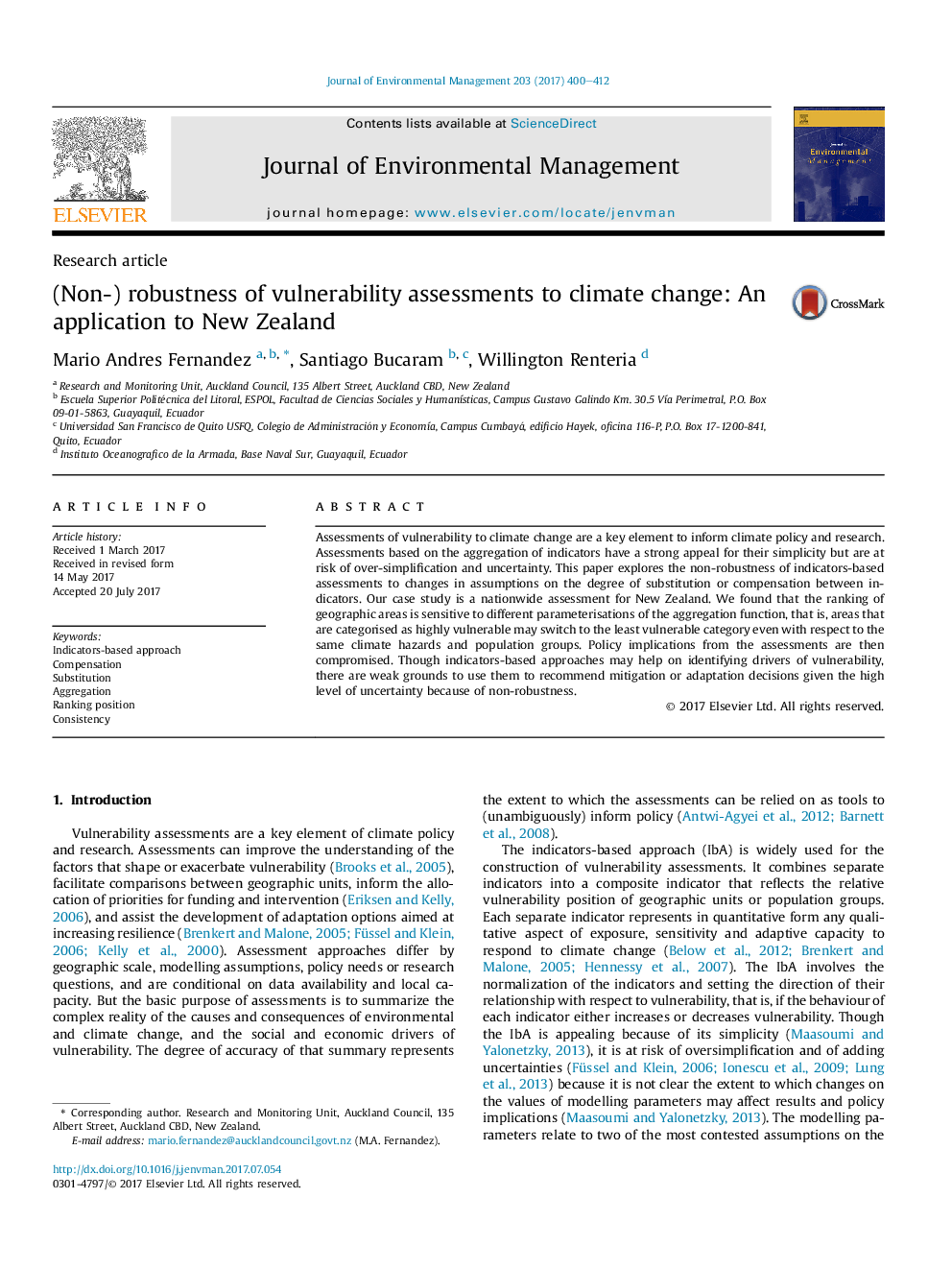| Article ID | Journal | Published Year | Pages | File Type |
|---|---|---|---|---|
| 5116526 | Journal of Environmental Management | 2017 | 13 Pages |
Abstract
Assessments of vulnerability to climate change are a key element to inform climate policy and research. Assessments based on the aggregation of indicators have a strong appeal for their simplicity but are at risk of over-simplification and uncertainty. This paper explores the non-robustness of indicators-based assessments to changes in assumptions on the degree of substitution or compensation between indicators. Our case study is a nationwide assessment for New Zealand. We found that the ranking of geographic areas is sensitive to different parameterisations of the aggregation function, that is, areas that are categorised as highly vulnerable may switch to the least vulnerable category even with respect to the same climate hazards and population groups. Policy implications from the assessments are then compromised. Though indicators-based approaches may help on identifying drivers of vulnerability, there are weak grounds to use them to recommend mitigation or adaptation decisions given the high level of uncertainty because of non-robustness.
Related Topics
Physical Sciences and Engineering
Energy
Renewable Energy, Sustainability and the Environment
Authors
Mario Andres Fernandez, Santiago Bucaram, Willington Renteria,
